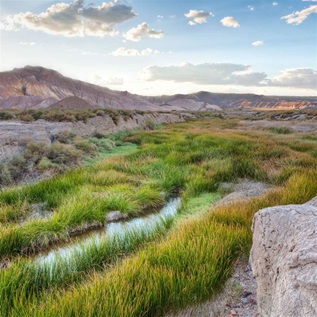More Science Needed to Protect U.S. Arctic Ocean
Independent Review of Federal Study Recommends Next Steps
Further research is needed to guide conservation and development decisions in America's Arctic Ocean, according to a new white paper (PDF) commissioned by the Pew Environment Group and the Ocean Conservancy.
The paper, authored by 14 experts in Arctic marine ecosystems, evaluates a recent report by the U.S. Geological Survey (USGS) An Evaluation of the Science Needs to Inform Decisions on Outer Continental Shelf Energy Development in the Chukchi and Beaufort Seas, Alaska summarizing gaps in Arctic Ocean research.
The scientists commend the USGS for identifying major science needs and call for setting priorities to address information still missing. They also emphasize the need to connect the research that has already been completed in various disciplines to provide a better understanding of the ecosystem as a whole.
The scientists recommend concrete next steps, including:
- Identify areas for protection. The Chukchi and Beaufort seas are home to bowhead whales, walruses, polar bears and other marine mammals found nowhere else in the nation and also are home to millions of migratory birds. The white paper notes that enough information is available now to set aside certain critical habitat areas.
- Establish long-term monitoring programs, including a series of stations where physical, chemical and biological data are collected repeatedly over time. “Almost every marine scientist now appreciates the absolute necessity of long-term monitoring for understanding ecosystem change,” the review says.
- Incorporate local and traditional knowledge. Alaska Native groups can provide insight into environmental trends and relationships that might not be available from other sources.
When it comes to the fragile Arctic, science, not politics, needs to guide decision-making - Marilyn Heiman, director of Pew's U.S. Arctic Program.
The recommendations arrive as the Obama administration is weighing oil industry requests to expand into Arctic waters. Federal approval could open the little-explored Chukchi and Beaufort seas to drilling. In addition to reviewing pending requests, the Department of the Interior is preparing a new five-year offshore oil and gas leasing plan.











